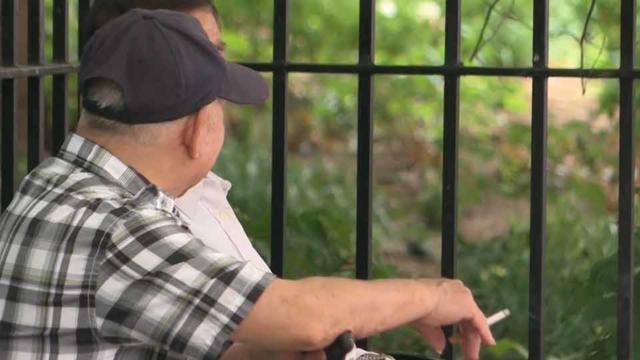Chinese men in New York are the city’s heaviest cigarette smokers, and the number continues to rise. The city’s health department has launched a new campaign aimed to getting them to put out their cigarettes, and the centerpiece is a new anti-smoking ad in Mandarin.
CGTN’s Karina Huber has details.
This is the first Mandarin anti-smoking TV ad created by the New York City Department of Health. It’s going after one demographic–Chinese male immigrants, who have disproportionately high rates of smoking.
Twenty-seven percent of Chinese men living in New York smoke. Lung cancer deaths among this community have risen 70 percent over the past 15 years.
“Most minorities already know about the harmful effects of smoking and the prevalence is going down, except for the Chinese and Asians in New York City,” said Warren Chin, Executive Director of the Chinese American Medical Society. “For them, it’s going up. This is a scary trend.”
Most Chinese smokers in New York began smoking in China, where Chin said smoking is more socially acceptable.
“In China, when you go and meet someone, greet someone, the first thing you do is take out your cigarette and you offer a cigarette,” said Chin.
New York City’s tobacco control policy has focused largely on raising the cost of cigarettes by heavy taxation. A pack now costs at least 13 dollars–the highest in the United States.
“Raising the price of cigarettes has actually reduced overall smoking rates in New York City,” said Regina Lee, Executive Vice President of the Charles B. Wong Community Health Center. “It actually has been very effective from a public health point-of-view.”
The problem is many Chinese smokers in New York aren’t buying legal cigarettes. In Chinatown, there’s a thriving market for contraband cigarettes smuggled in from other states and countries. Buyers often pay less than seven dollars per pack of cigarettes. Cracking down on the black market has proven difficult for law enforcement as it’s so rampant.
Lee, who chairs the Asian-American Smoke-Free Community Partnership, said language barriers also contribute to the high smoking rates among Chinese New Yorkers.
“New York City and New York state provide smoking cessation counseling,” said Lee. “Unfortunately, many of those programs are offered in English or Spanish. So if you belong to another language group, like Chinese or one of the other immigrant groups, it’s very difficult to access smoking cessation resources.”
The city is now directing Chinese smokers to a Mandarin hotline in California. But experts said the biggest way to encourage Chinese smokers to quit may be by focusing on the negative impact it has on their families. Second-hand smoke can cause harm to loved ones and losing a family member can be devastating.
Dr. Joel Nitzkin talks about anti-smoking campaigns aimed at Chinese male immigrants
CGTN’s Elaine Reyes spoke to Dr. Joel Nitzkin, tobacco policy analyst at Canada’s R Street Institute, about efforts to cut smoking rates among male Chinese immigrants.
 CGTN America
CGTN America

